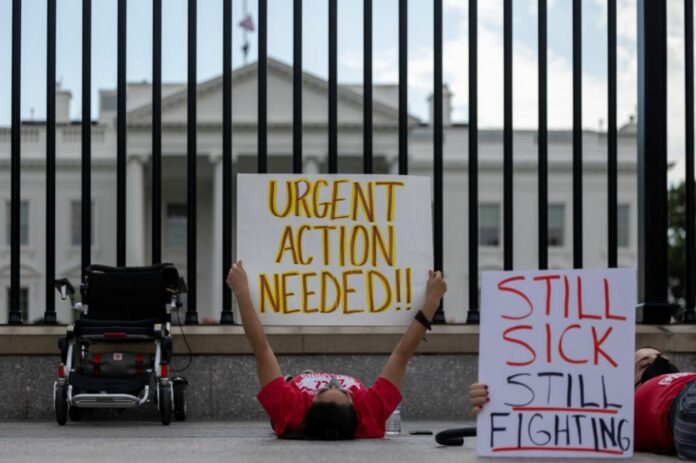A new study published today in the European Respiratory Journal found that patients with long COVID who still have fatigue and shortness of breath after a year have signs of autoimmune disease in their blood.
Autoimmune disease happens when the body’s immune system starts attacking healthy parts of the body instead of fighting off illness. It contributes to diseases like lupus and rheumatoid arthritis.
This observation, according to the researchers, provides insights into the nature of long COVID that could eventually lead to advancements in identifying and treating the disorder.
“Although long COVID is now recognized by bodies like the World Health Organization,” says lead author Dr. Manali Mukherjee, “we still know very little about why it develops or how we can help patients.
“I’m a respiratory researcher with a background in studying the immune system and when I experienced the symptoms of long COVID first-hand, I began to wonder about the role of the immune system in this condition.”
Dr. Mukherjee and her associates gathered 106 patients from three Canadian hospitals (St. Joseph’s Healthcare Hamilton, Vancouver General Hospital, and St. Paul’s Hospital, Vancouver) who had received a diagnosis of COVID-19 between August 2020 and September 2021 in order to learn more. In order to make a comparison, researchers also included a group of 34 individuals with a non-COVID respiratory infection and a group of 22 healthy volunteers.
Patients were questioned about their level of fatigue, coughing, and shortness of breath three separate times, at three, six, and twelve months after they had recovered from the infection (typical symptoms of long COVID). After six months, 98 out of 106 patients were still taking part in the study, but only 57 came back after 12 months. According to researchers, this could be attributed to patients’ healing.
Blood samples were also taken from the participants. The samples were examined by researchers for specific antibodies. Antibodies are often created by the immune system to bind to potentially dangerous bacteria or viruses, so identifying them for attack by other immune system components. In this study, researchers sought antibodies that target healthy cells and tissues and are known to contribute to autoimmune disorders.
Three months and six months after infection, about 80% of COVID-19 patients had at least two of these antibodies in their blood. Within a year, this dropped to 41%. The majority of the healthy participants showed no evidence of these antibodies in their blood, and those who had a non-COVID respiratory infection had relatively modest levels of these antibodies.
Additionally, they discovered that 30% of COVID patients still had two specific “autoantibodies” (named U1snRNP and SSb-La autoantibodies) and other proteins (called cytokines) that promote inflammation a year after infection. This was common among patients who continued to experience fatigue and shortness of breath.
“For the majority the patients in our study, even if they had autoantibodies soon after their infection,” adds the lead author, “this resolved after 12 months. However, in some patients, autoantibodies persist, and these patients are more likely to continue suffering with symptoms and to need medical help.
“These results point towards the need to test for signs of autoimmune disease in patients with symptoms of long COVID that last for a year or more.”
“Our data on autoantibodies in those months following COVID infection buttresses that of other groups,” said Professor Carlsten, “and provides strong plausibility for the presentation of long COVID as a systemic disease.”
In order to determine how the levels of autoantibodies evolve over a longer period of time, Dr. Mukherjee and her associates will now follow COVID patients for two years.
“Millions of people around the world are suffering with long COVID and that is having an enormous socioeconomic impact,” said Dr. Eva Polverino from Vall d’Hebron University Hospital, Barcelona, Spain, is Head of the European Respiratory Society’s Respiratory Infections Assembly and was not involved in the research.
“However, there is a lack of evidence on why some people develop the condition and how we can help patients recover.
“We know that certain infections can, in some cases, trigger longer-term autoimmune diseases such as rheumatoid arthritis. This study adds to growing evidence that similar processes may be involved in long COVID. Further work in this area could increase our understanding of long COVID and how best to diagnose and treat the condition.”
Source: 10.1183/13993003.00970-2022
Image Credit: Getty
You were reading: Long COVID Could Be An Autoimmune Disease – US Scientists
